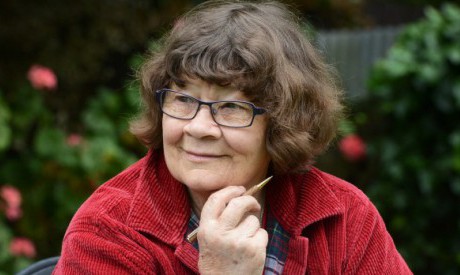Some of the people who convert to Catholicism, come from other Christian traditions. Others are simply hi-jacked by God.
I’m privileged to share a story of the latter kind, the experience of a young woman who had never had any interest in religion.
Her passion was architecture, and she was in Rome with a camera, pencils and pad, capturing the shape of history.
St Peter’s basilica was crowded but she found an empty side chapel, sat in one of the pews and began sketching her surroundings.
Of course, she didn’t know those chapels are not empty for long.
A large number of nuns in brown habits came in, talking in a language she couldn’t identify. Within seconds she was hemmed in at all sides, unable to make an exit.
When a man came in and stood up front, she realised a service had started and she felt she was intruding. There was nothing she could do about it.
When it was time for holy communion, she did the easiest thing, and followed the sisters.
She received the body of Christ without knowing what it was.
She told me that after everyone else had left, she stayed in the chapel, wondering what had happened to her.
She felt different.
There seemed to be a deep peace inside her, something she recognised but could not name.
The feeling stayed and it created in her a hunger.
She is now a Catholic and as enthusiastic as converts often are.
Her story was important to me, creating awareness that also raised a few questions.
The Eucharist is at the heart of our faith, and is revered and protected.
The disciplines and rituals associated with the body of Christ are like fences around a mystery too deep to be named, too sacred to be dishonoured in any way. That’s the awareness.
Who owns the sacraments?
It is a persistent question and my answer to that is God; but there are other questions that have no ready answers.
When does reverence become tribalism?
Do the rules that come from our love and devotion, actually limit God?
I don’t know.
All I know is this sort of thing never bothered Jesus. He had no fences and he didn’t put labels on people.
Yet we know the disciplines of faith are important. They are the container that has held the sacred throughout the ages.
Will these disciplines change? I hope not. But maybe the rules could be softened in their execution.
At mixed gatherings such as wedding and funerals, a priest usually makes some form of the “us and them” statement about receiving holy communion. He usually does this apologetically.
What would happen if he said nothing?
If someone from another Christian church came up to receive the body of Christ, would that be a sin?
And what if someone who had no faith, played follow-the-leader? Should we get overly anxious about that?
There is always a danger that in our thinking we will make God too small.
- Joy Cowley is a wife, mother, grandmother, great-grandmother and retreat facilitator.
Additional reading
News category: Analysis and Comment.




